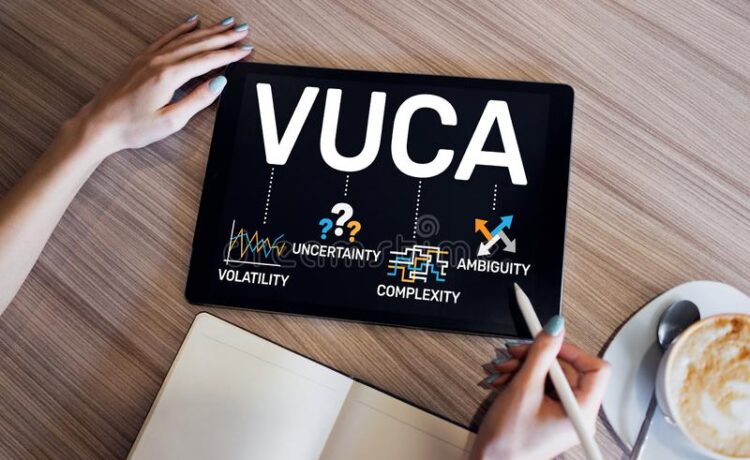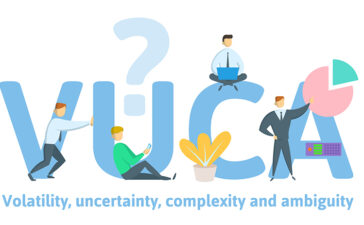Today’s business environment is rapidly changing, either as a result of regulatory changes or as a result of the impact of political and economic developments in both the domestic and global environment. Organizations and personnel are currently wrestling with how to deal with situations that are beyond their control. Because organisations today are unable to predict the risks that may befall them in the near future, the myth of long-term planning is fading, and the evolution of short- and immediate-to-mid-term strategies is attracting boardroom attention.
Contractual and contingent workers, partners, contractors, and suppliers, as well as consumers and competitors, are all part of today’s workforce— the extended enterprise. This “extended enterprise” is just as important to a company’s success as its permanent personnel. However, integrating this ecosystem of stakeholders in such a way that they can join together strategically to create value for the firm while also realising their potential is proving difficult. Work was done in silos during the Industrial Era, with process adherence and efficiency playing a major role. As we move into the VUCA[i] (Volatile, Uncertain, Complex, and Ambiguous) era, this way of working will no longer suffice. Fast changes, emphasis on diverse workers, and the struggle of dealing with uncertain and demanding consumers characterise this era of flux and ambiguity. The question arises that, as an HR executive, how do you adapt to this ever-changing, dynamic and volatile environment referred to as VUCA times?

Many firms are currently working to implement various engagement systems such as social intranets, blogs, enterprise collaboration platforms, and so on. However, these are frequently isolated from the key HR systems, which house organisational data and information. This results in inconsistency and the inability to connect the loops in the value chain. The majority of digital and cooperation initiatives also fail here. This is where HR can play a critical role in connecting the two systems – through technology and reimagining processes, organisational design, and other initiatives such as community management, equipping employees with digital skills so they can explore this new era with ease.
In a VUCA environment, HR plays a critical role in making this dream a reality. Listed below are three activities that HR must do in this setting.
First and foremost, HR must collaborate with senior management to envision, frame, and promote the necessary culture. Fast-moving, dynamic, and highly opportunistic cultures will be required to establish and retain micro-competitive benefits. To take advantage of the opportunities offered by ever-changing markets, organisational silos will have to give ground to cross-unit synergy. Improvisation and experimentation with new products, services, and business strategies will be encouraged in such cultures.

Second, to accommodate the inconsistencies of change, HR will need to alter its collective talent and organisational tools. The workforce arrangement must be fluid and adaptable. People will change their minds based on market conditions. Individual talents will no longer be owned by corporations; instead, talent will be owned by organisational factors. Individual skill will reflect the simultaneous demand for deep specialists and wide generalists. Measurements, rewards, and accountability will have to be reevaluated and changed regularly to reflect dynamic pockets of competitive advantage. HR will play a key role in promoting information flow from the outside in, from the future to the present, and from within silos to across silos.
Third, and perhaps most demanding, HR will have to incorporate the culture and practises that will be necessary in a VUCA environment of micro-competitive advantages. HR appears to be a change facilitator in some firms, but it is sometimes perceived as a source of change opposition. To position HR as a role model with the credibility and ability to develop and sustain the required culture, an honest self-examination of individual HR talent and department competencies may be required.
Businesses, simply, won’t be able to survive in the VUCA era without such HR tools and strategies in place. Firms, on the other hand, can improve their chances of achieving long-term competitive advantages by using these HR tools.
Listed below are some HR actions to take to acquire a competitive advantage in a VUCA world:
- HR leaders should understand the reality of the VUCA atmosphere and the importance of sustainable micro-competitive advantages as a critical element in such a world.
- They must reach a consensus with top management about the culture that is currently required to thrive in a VUCA world.
- HR tools and practices must be restructured to reflect the business regulations of flexibility, adaptability, cross-border collaboration, and speed.
- HR departments must be reviewed and held to the same high cultural standards as the rest of the company.
[iii]HR professionals today have significantly more responsibilities than they did a decade ago. HR is now seen as a more responsible and successful business partner who is not limited to resource acquisition but is making inroads into boardrooms and becoming a critical participant in the organization’s strategy.HR can reinforce the importance of exploiting the benefits of network and emerging technology (social, mobile, analytics, etc.) by placing communities and collaborations front and center. This new style of working will incorporate business applications and other collaborators that, when used properly, can almost eliminate the cost of communication. They can also help with self-directed learning, a transparent and continuous feedback culture, and contextual and dialogue-driven problem-solving. Above all, these tools may cut over organisational barriers and tap into the collective intelligence of the organisation to create a learning flexible and future-ready workplace.
Conclusion:
This transformation requires a thoughtfully designed workspace where teamwork and social learning are not an afterthought, but rather an integral element of the overall business plan. It is necessary to foster a culture of participation, where “participation” does not indicate bureaucratic adherence and cooperation, but rather a thoughtful discussion and open sharing. Renee West of Luxor and Excalibur Hotels quoted, “You can have the best strategy and the best building in the world, but if you don’t have the hearts and minds of the people who work with you, none of it comes to life.” A future-ready organisation will be able to navigate the VUCA dynamics no matter what changes occur in the business environment. In this scenario, the HR Department will play a critical role; becoming cognizant of the changes coming their way and establishing a roadmap to deal with the problems will be a responsibility that HR will have to master. HR will have to figure out how to connect the dots between corporate needs and personnel abilities. The future is both frightening and exciting, but it must be met with better preparedness.














